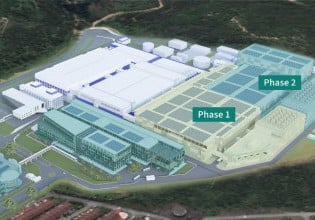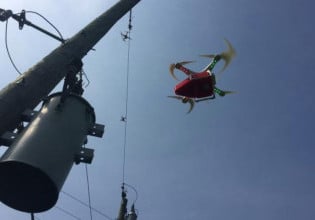Power Products Deliver Innovation for Electric Vehicles
New power semiconductor, AC energy meter, and battery products target the growing EV market.
Recent product releases for power semiconductors, AC energy meters, and batteries targeting applications in the rapidly-expanding electric vehicle (EV) market are evidence of the growing momentum that begins with e-OEMs and trickles through to the entire auto components supply chain.
Improving EV battery design with AI tools. Image used courtesy of Citrine Informatics
Magnachip Semiconductor Corporation has released 650 V and 1200 V IGBT (insulated-gate bipolar transistors) devices designed to power the rugged positive temperature coefficient (PTC) heaters used in EV cabin heating systems.
Italian switch, control, and sensor supplier Carlo Gavazzi is launching its EM511 Series single-phase energy meters designed to support Level 1 and Level 2 residential EV chargers. The meters help with residential load balancing during vehicle charging to ensure power limits are not exceeded.
Sion Power Corporation, developer of the Licerion hybrid lithium-ion battery technology for EVs, has announced a multi-year agreement with Citrine Informatics to use Citrine’s AI software tools to enhance its battery development processes.
Power for Cabin Heating in an EV
In modern EVs, the cabin heating system is typically powered by the high-voltage battery bus. Running off the high-voltage bus allows more power to be delivered to the PTC heating elements, offering better climate control and more cabin comfort.
Positive temperature coefficient (PTC) heaters bring a high level of performance and safety to EV cabin heating systems. As a positive temperature coefficient device, the resistance of the heating element increases with temperature, adding a layer of safety during operation. At cold temperatures, the lower resistance allows the elements to heat quickly.
EV cabin heating with PTC heaters. Image used courtesy of Skyworks
IGBTs, or other high-voltage devices, control the current through the PTC heaters. Because EV heating systems run off high voltages, robustness and safety are key design criteria for the power semiconductor switches and other components of the system.
The new AMBQ40T series of IGBTs (650 V and 1200 V) from Magnachip use the company’s Field Stop Trench technology to provide a critical minimum short-circuit withstand time (SCWT) of 10 µs. The SCWT robustness of these devices helps ensure that an EV’s PTC heaters are not permanently damaged in the event of an overcurrent fault condition.
IGBT high voltage switches for EV cabin heating. Image used courtesy of Magnachip
Residential Load Balancing with an EV Charger
The EM511 from Carlo Gavazzi is a single-phase AC energy meter designed for Level 1 and 2 residential EV charger applications.
Level 1 and 2 EV chargers deliver 120 or 240 VAC single- or multi-phase AC power through the EV’s charge port and onboard charger (OBC) to replenish the vehicle's powertrain batteries.
Installed directly in the low-voltage switchboard that powers the EV charger, the EM511 provides real-time monitoring of total residential power consumption and transmits this data to the EV charger via Modbus RTU communications. With this information, the charger can adjust its power level to prevent exceeding power limits for the residence.
The meters are bidirectional, so they are capable of measuring both imported and generated energy for vehicle charging and V2G (vehicle-to-grid) operations.
EM511 power meter for EV charge load balancing. Image used courtesy of Carlo Gavazzi
Using AI to Advance EV Battery Development
Sion Power is the developer of Licerion rechargeable battery technology used in a range of applications, including EVs, aerospace, and energy storage.
The Licerion battery design uses a proprietary lithium metal anode combined with redundant protection mechanisms that allow for high-energy density storage without compromising safety.
The company’s Licerion-EV product is designed specifically to meet the requirements of EV battery applications, including fast-charging capabilities and a long cycle life. The battery comes in a 17.4 Ah pouch cell form factor and has an energy density of 400 Wh/kg and 780 Wh/L.
Licerion battery technology for EVs. Image used courtesy of Sion Power
According to Tracy Kelley, Sion Power CEO, integrating Citrine’s AI platform into their product development will allow the company to develop new batteries with twice the energy density in conventional lithium-ion batteries. For EV applications, this will mean twice the driving distance on a single charge.
Citrine Informatics' AI tools are used by manufacturers to rapidly advance battery designs and improve their performance through faster material development, better configuration optimization, and improved battery testing.











